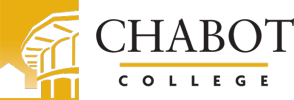
Business Administration 2.0
This program map from the 2024-2025 catalog year represents one possible pathway to complete this program. Your pathway may vary depending on your transfer plans and also previous college credit, including AP Test scores, concurrent enrollment courses and high school articulated courses.
I'm ready to get started. What do I do next?
- Review this program map to get an overview of the required courses
- Meet with a counselor to develop your customized student education plan www.chabotcollege.edu/counseling
- Use DegreeWorks, an online student education planning tool, to track your progress toward graduation www.chabotcollege.edu / admissions / degreeworks
The Business Administration certificate and the AS-T degree are stackable: the Business Administration certificate includes only 5 classes, or 18 units, all of which are also required for the AS-T degree (60 units).
The main goal of these programs is to prepare you for transfer as a Business major (any specialization, such as Accounting, Finance, International Business, Marketing, Information Technology Management, Human Resource Management, Entrepreneurship, Corporate Management, etc.) to a four-year university in the California State University system.
What can I do with this major?
Both the certificate and the AS-T degree include classes required to complete the first TWO years of a BA/BS degree in Business. The certificate provides the major (business) classes and the AS-T provides the major plus the general education courses. Earning the AS-T degree prepares you to transfer to any of 23 California State University campuses. If you want to transfer to any of the three University of California campuses offering an undergraduate degree in Business Administration (Berkeley, Irvine, or Riverside), see a counselor, as the transfer pattern is different.
Additionally, you can apply for various jobs to increase your salary, gain business experience, and help you get through a four-year degree.
- An entry-level job within accounting, marketing, sales, or any business operation units or financial service organizations.
- Supervisory jobs in retail or business operations.
- Jobs are available in just about any corporate business and non-profit organization.
Learning and Career Pathway
- Business, Economics & Information Technology